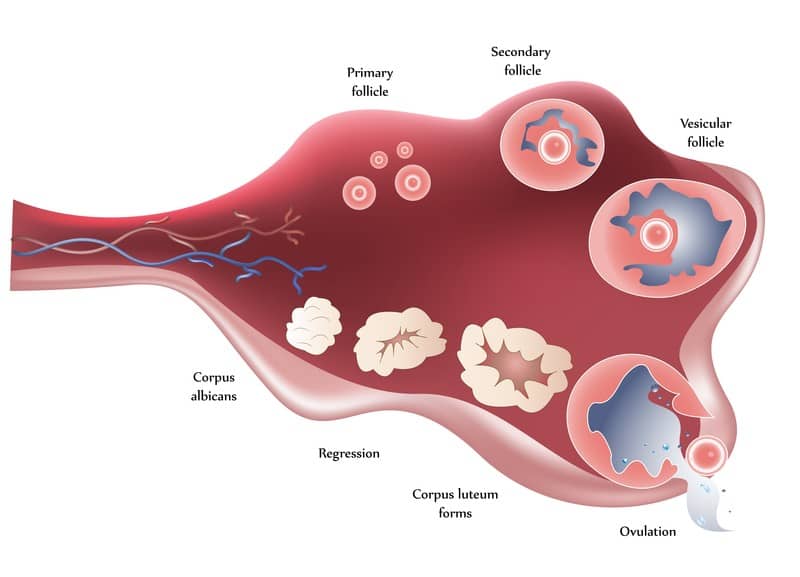What is a short follicular phase?
The follicular phase is the first half of the cycle from day one of your period to ovulation. A healthy follicular phase would be 13-15 days. While the majority of fertility patients I see have problems with luteal phase defects, there are also many women who have a short follicular phase.
Is a short follicular phase a problem?
Yes, it absolutely can be. The egg needs at least 13 days to mature properly.
Why is a short follicular phase a problem?
The ideal scenario for ovulation is 14 days to mature an egg and release it, then another 14 days post ovulation until your period (should) come. For the egg to mature in a healthy way, it needs the full 14 days.
Why would I have a short follicular phase?
There are two possibilities as to why your eggs are getting released too quickly:
- High levels of estrogen. It is estrogen’s job to mature the egg in preparation for release. If there is excessive estrogen, the egg matures too quickly. Why would there be too much estrogen? Three other possible reasons: a) Insulin provokes an increase in estrogen level and/or activity, b) it is the responsibility of your liver to break down estrogen when it’s excessive or throughout your menstrual cycle when estrogen levels are supposed to drop (after ovulation and before your period). If your liver isn’t processing estrogen well, it can accumulate and c) there is an accumulation of xenoestrogen (chemicals/pollutants like BPA that can act like estrogen). The solution to these options is a) reduce insulin provoking foods in your diet, b) and c) enhance liver detoxification.
- Your brakes aren’t working. The brakes that slow down egg maturation are your androgens (male type hormones). DHEAs and testosterone act as moderators that don’t allow estrogen to get the egg ready too quickly before it has had time to fully mature. Where do these brakes come from? Most of your DHEAs is produced by your adrenal glands (your stress glands). A significant amount of your testosterone also comes from your adrenal glands. Keeping your adrenals healthy and running well is vital to healthy hormone balance and fertility. Adrenal glands need vitamin C, B5, B6, Magnesium and Zinc to function well. Stress can deplete these vitamins and minerals, which compromises the function of your adrenal glands.
